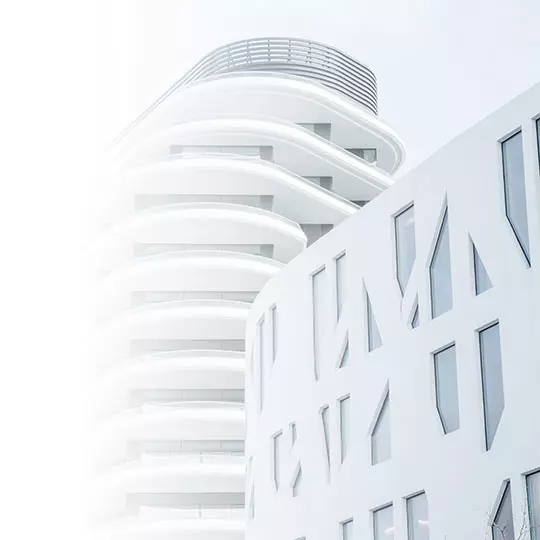
When you take drugs, you change the chemistry in your brain. Drugs and alcohol affect the chemical messengers that influence how you think and feel. When these effects are pleasurable or euphoric, it stimulates areas of your brain that encourage you to seek yet another drink or dose.
If substance abuse becomes a regular activity, you can develop a tolerance to the drugs you use. This means you need to take increasing amounts to feel the same effects. Eventually, your body and mind become so used to the presence of the substances that you feel unwell when you don't take them. These unpleasant feelings are called withdrawal symptoms. Needing to take a substance to avoid withdrawal is called dependency.
Dependency is about the interaction between your body and the substance that you abuse. Addiction is about your mental health and the reasons why you take drugs. Dependency and addiction overlap, and to successfully help you, substance abuse treatment services need to tackle both.
In medical terms, a person with a drug dependency or addiction is described as having a substance use disorder (SUD).

Many legal and illicit drugs have properties that make it possible for any user to become dependent on them. It's also true that every person has the potential to develop an addiction to drugs or alcohol.
Some people are more at risk than others of becoming addicted. As much as half of an individual's vulnerability to addiction may be in their genes. Other issues, such as difficult mental health symptoms or memories of trauma, can also make a person more susceptible.
A person's addiction risk is not only about their DNA or the way they cope with mental illness. The people who surround them also make a difference. Growing up around substance abuse or spending time with peers who misuse drugs may increase someone's vulnerability to addiction.
When you go to an addiction treatment center, you will receive care that takes into account the physical properties of the drug and the reasons why you developed an addiction. At Vita Recovery, we ensure that this treatment is tailored to your life and your circumstances.


It is not always easy for a person to recognize when they need help to overcome their drug abuse. If you or your peers have misused drugs for a long time, you may feel that your actions are "normal".
It is worth asking yourself whether drugs are monopolizing your time or keeping you from the life that you want. These are both signs that you could benefit from an addiction treatment center. You may recognize yourself in the list of behaviors below. Doctors use a similar list when diagnosing a person with a substance use disorder.
You spend much of your time obtaining or using drugs or recovering from drug use.
You fail to stop or cut back on drug use.
You socialize mostly or only with fellow drug users.
You compulsively seek and use drugs, despite adverse consequences.
You neglect work, family, or social responsibilities and take drugs instead.
You have withdrawal symptoms when drugs are not in your system.
You need drugs to feel normal or cope with challenging situations.
You behave badly to sustain your drug use.
You do risky things to obtain drugs or while under their influence.
Substance use disorders exist on a scale from moderate to severe. Even if you only identify with a few of the behaviors on the list, it is a good idea to seek help from addiction treatment centers.
Drug and alcohol addiction alike can place great strain on work, social and interpersonal relationships. Abusing drugs or alcohol takes you away from doing your best at work and enjoying your outside interests. Above all, substance abuse greatly impacts your physical and mental health.
Drug abuse and addiction may cause a person to experience paranoia, panic attacks, anxiety, irritability, or depression. When the drug is not in their system, they can also experience withdrawal symptoms such as flu-like sensations, tremors, excessive sweating, fatigue, and difficulty breathing.
Other common short-term effects of drug abuse include:
Elevated body temperature
Slurred speech
High or low blood pressure
Rapid heart rate
Changes in appetite
Drowsiness
Insomnia
Mood swings
Lack of inhibition
Difficulty concentrating
The long-term use of drugs interferes with brain functioning and causes mental health issues. Some drugs can prompt depression or anxiety, a decrease in cognitive skills, and psychosis.
Other common long-term effects of drug abuse include:
Heart and blood vessel damage
Stroke
Lung and breathing problems
Lowered immunity
Digestive system damage
Hormonal imbalances
Various types of cancer
Seizures


Our highly structured PHP program is overseen by an experienced multidisciplinary team. It includes an expert medical team for medication-assisted treatment or management, psychiatric services, and family, individual, and group counseling.
Additional education may include :
Mood management and emotional regulation
Relapse prevention
How to handle work or school commitments
Although you won't be staying at our treatment program overnight, we still provide you with comprehensive care that is slightly more intense than our Intensive Outpatient Program. PHP is the ideal next step of recovery for anyone who has recently completed detox or inpatient treatment or prefers a structured day of therapy.

Our team of clinical experts provide substance abuse and addiction treatment for:
Heroin Addiction: Heroin is one of the most commonly abused illicit drugs. It negatively affects a person's sleeping and breathing patterns. Addiction to this natural opiate made from morphine can cause infection of the heart lining and valves, lung complications, collapsed veins, and clouded mental functioning.
Cocaine Addiction: This highly addictive stimulant drug comes with short-lived effects. Hence users often abuse the drug multiple times in a session. Cocaine addiction produces restlessness, panic attacks, paranoia, and even full-blown psychosis. It also has significant toxic effects on the heart and cardiovascular system and is linked with an increased risk of stroke.
Meth Addiction: Methamphetamine brings about energy, focus, and euphoria, and typically an unpleasant crash afterward, causing individuals to want to use the drug again. It comes with the risk of psychosis, significant anxiety, insomnia, confusion, mood disturbances, and violent behavior. Some physical effects include weight loss, skin sores, severe tooth decay, and tooth loss.
Marijuana Addiction: This drug comes with an increased risk for certain types of cancer, and can cause anxiety, paranoia, and panic. Marijuana use can raise your chances for clinical depression or worsen existing symptoms of mental disorders.
Opioid Addiction: Highly addictive, extremely potent drugs, often mixed with synthetic opioids like fentanyl have led to an opioid epidemic and killed countless Americans.
Prescription Drug Addiction (including painkillers, stimulants, tranquilizers, and sedatives): Often misconceived as being safe, since they are prescribed by healthcare professionals, prescription drugs come with the same dangers as illicit drugs when abused. Addiction to prescription medication can develop even if it is taken as directed; any repeated exposure comes with the risk of addiction.


The duration of your treatment depends on the severity and length of your drug use, your personal and medical history, as well as your individual physical and mental health and treatment needs.
An assessment will help determine your treatment options, and a customized treatment plan will be designed according to your situation. Typically, our programs last from several days to four to six weeks.
Although many private health insurance policies cover drug treatment, it is best to inquire about your specific treatment program.
Contact Vita Recovery's admissions department, and a team member will be happy to walk you through financing options and help you understand what your private health insurance policy covers.
Addiction treatment centers offer outpatient programs for those who have family, personal or professional obligations they can not leave behind. It is also an option for anyone who has undergone inpatient rehab and wishes to have structured support or help with transitioning to daily life.
With addiction therapies and treatments similar to that of inpatient rehab, outpatient treatment programming allows a person access to heal and recover while going home or to a sober living home after the day's therapy.
Medication-assisted treatment (MAT) provides a 'whole patient' approach to the treatment of substance abuse and addiction. In combination with counseling and behavioral health therapies, MAT uses medications that are FDA approved to block the euphoric effects of drugs, relieve physiological cravings, and normalize brain chemistry and body functions without the negative effects of the abused substance.
Addiction treatment focuses on all aspects of addiction. In this way, Vita Recovery's Miami treatment programs ensures the root causes of addiction aren't left unaddressed and that you leave our treatment programs with the tools and skills to continue sobriety.
Comprehensive medical and bio-psycho-social evaluations help our multidisciplinary team design a customized treatment plan so that your emotional, psychological, and mental health needs are addressed as well.

